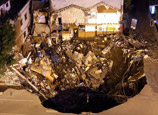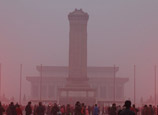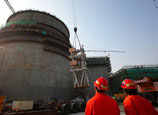
Scandals exposed
Despite this official denial, many people still believe there has been a property sell-off by government workers, partly because prices in the housing market are rising again and also because of several recent scandals related to government workers' dubious acquisition of multiple properties.
Prices of both newly built and second-hand residential houses surged in December, especially in first-tier cities, with the highest month-on-month growth rate since May 2011, despite the government's curbing policies to rein in speculative house investment.
The price of a 100-square-meter downtown apartment in Beijing and Shanghai is currently about 80 times local residents' average annual disposable income.
At such high prices, it's hard to own one, let alone several such homes. But some officials, despite their relatively meager government salaries, have as many as 30 homes, according to recent media investigations and reports.
Public servants or government workers who abuse their position to acquire property worth billions of yuan have drawn wide public attention and criticism, with netizens nicknaming them "housing sister, housing auntie, housing uncle and housing grandpa."
Cai Bin, a 56-year-old government official in the Urban Administration of Panyu, South China's Guangdong Province, was reported in October 2012 to have 21 homes due to taking bribes. Cai has since been removed from his post.
Gong Aiai, a former vice president of a rural commercial bank in Shenmu, Northwest China's Shaanxi Province and a local people's congress deputy, was recently found to own 12 apartments in Beijing worth around 100 million yuan. She also reportedly has four hukou, or local housing registrations, three of which were illegally possessed. Gong is currently under investigation by the police.


















 'Joint effort' urged to clear the air
'Joint effort' urged to clear the air


![]()
